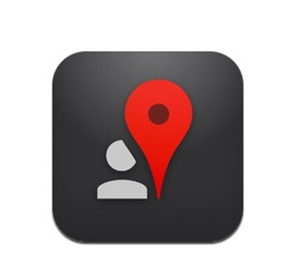10 Likely Elements of Google’s Local Search Algorithm
Several of us have been involved in a lot of discussion about why the same search produces different results between Google Maps and Google.com.
The recent expansion of the Google Maps Onebox on Google.com makes local search optimization much more important than it was before this new display was implemented widely on Google.com. Now, whether you have a web site or not, a business that Google ranks highly in Google Maps can get dramatic exposure thanks to last month’s change. How dramatic? Well, according to Bill Tancer’s Hitwise data, Google.com gets about 100x more traffic than Google Maps. So, yeah, this can be huge for some small businesses.
The inevitable question, then — and the one several of us have been discussing — is what makes the Google Maps algorithm different from Google.com? Google Maps has a unique set of data to draw from. Here’s a semi-educated guess — but a guess, at best — at some of the factors that might make up the Google Maps algorithm. (These are not necessarily listed in order of importance.)
1. Use of Google’s Local Business Center (LBC)
Local search requires structured data to be effective. Google needs to be able to match the business to a location. By submitting a business listing, you’re giving Google the data confirmation it needs to make the association between your business and your place on the map.
2. Availability/Trust of other business data
If the business is not participating directly with Google’s LBC, does it have listings in the other major business databases like Acxiom, Amacai/Localeze, and infoUSA? If so, and if the listings are the same from one database to the next, Google may be able to assign more trust to the business and its location. Listings in Internet Yellow Pages (IYP) providers such as Superpages and YellowPages.com might be used for a similar purpose.
3. A Business Web Site
Having a web site is not a requirement to being found in Google Maps (or Yahoo! Local, for that matter). However, having a web site, and having pages that are properly optimized for local search terms (keyword and location) would most surely be a factor in the local search algorithm. Taking steps to make your page(s) more local should be part of a business’s local SEO effort.
4. Listings in 2nd-tier Local Directories
I use the term “2nd tier” because I’m putting yellow pages on the top level of trusted local directories. Very slightly below them, I think, would be sites such as CitySearch, Yelp, InsiderPages, and the like. I’ve seen Yelp data cited an inordinate amount of times in Google Maps in recent days for a variety of local business listings. It seems logical to suggest that both the business data and the user reviews on sites like these would be impacting the local search algorithm. (More on reviews in a moment.)
5. Listings in Vertical Directories
For some queries, Google Maps pulls data from verticals such as TripAdvisor, ChefMoz, Gayot.com, Fodors, Travelocity, Wcities.com, Frommers, HotelGuide.net, and so on…. These sites are often being used for reviews that Google shows, but also for secondary business data such as Payments Accepted, Directions, Price Range, Checkout Time, etc.
6. References from other Web sites
Citations and links from other web sites that include the business name and location would, in theory, be helpful in ranking for local search terms. This might include references from Chamber of Commerce-style sites, Visitor Bureau-style sites, city/town directories, and even school web sites, not to mention the local categories of DMOZ, Yahoo Directory, and the like.
7. Reviews
It’s hard to get a handle on the impact of user reviews in the algorithm. In many searches, a 4-star rated business will be listed higher than a 5-star business. In some searches (see below), a business with no reviews will be listed above a 5-star rated business. That speaks to the fact that reviews can be “gamed,” though I would still suggest strongly that both quantity and quality of reviews are part of the algorithm.
8. Proximity to location
Not too long ago, this was a prime factor in many local search algorithms. A local search SERP used to show listings based on proximity by default. That’s not the case anymore, but for any location-based search, it still has to play some part in the algorithm.
9. Location Prominence and User Query
Full credit for this goes to Bill Slawski of SEO by the Sea, who wrote about location prominence in relation to the search query a user enters. In a nutshell, a Google patent application Bill analyzed reveals that some local queries are said to apply to a smaller geographic area than other queries. To borrow an example Bill has used, someone searching for car dealers may be more willing to consider businesses over a 30-40 mile area than someone looking for pizza. The algorithm, if this patent is in use, would take user queries into account as it determines how big an area to include in the results. (Bill, did I get that right?)
10. Use of other Google services
No, not the dreaded Google rewards AdWords customers with higher rankings conspiracy; that’s not what I’m suggesting. I’ve seen no evidence to suggest a business that uses Google Checkout, for example, gets found easier in local search (yet). There is the possibility, though, that the use of a Google Maps service — such as coupons — could play a small factor in the local search algorithm. Coupons are too new, and may not have wide enough adoption to say for sure one way or another. More research would need to be done.
So, that’s my quick and unscientific stab/guess at what might be rolled in to Google’s local search algorithm. I’m sure it’s nowhere near complete, and your thoughts and guesses are very welcome in the comments.
To underscore the difficulty of de-constructing a local search algorithm, where keywords and anchor text aren’t nearly enough to determine relevance, let’s look at a not-too-competitive search: dry cleaners in san jose. Since there’s not a ton of data to dig through, it’s easier to spot differences between the results we get back.
Listing “A” — The one dry cleaner with a web site gets the top listing. The web site has a PR=1, but is not especially optimized for local search aside from internal anchor text that says “San Jose, California” pointing to a page that holds a Mapquest map and little more. Google’s info. about the business shows data from Acxiom (Allpages.com), Yelp, Citysearch, Superpages.com, and others — a nice variety of external references for such a small business. This business has no reviews, and doesn’t appear to have submitted to Google’s LBC. It’s further from the San Jose city center than listing B, and about the same distance as listing C.
Listing “B” — This business, like listing C below it, does not have a web site. It also doesn’t appear to have submitted to Google’s LBC. It’s closer to the city center than listings A and C, and also has a 5-star review from Yelp. Neither listing A nor listing C has any reviews. It has fewer 3rd-party web references than listing A, but more than listing C.
Listing “C” — This business is the only one that is using Google’s LBC. The business has no reviews, but is using the LBC to offer a coupon. The only 3rd-party web reference Google shows is an Acxiom listing on AllPages.com. It’s about the same distance away from the city center as listing A, but further away than listing B.
What’s interesting to note here is that the SERPs below this Google Maps display are filled with directory sites such as Citysearch, Yelp, InsiderPages, and even Yahoo Local. No actual dry cleaner has the juice to outrank deep pages on these sites. Listing B is the only one of our three that appears in the Yahoo Local Top 10 — it’s the first dry cleaner listed, and has a 5-star review.
Conclusion
Traditional search is keyword-based and the algorithms center mainly on the keyword: where and how often it appears in the page title, on-page text, inbound anchor links, etc. Local search is a different ballgame because geography gets thrown into the mix, and geographic data is spread out far and wide on the web. The fact that most small businesses haven’t done anything to confirm their online data only makes local search harder to get right … and makes the algorithm that much harder to de-construct.
original link: http://www.smallbusinesssem.com/10-likely-elements-of-googles-local-search-algorithm/519/





I have been exploring for a little bit for any high quality articles or weblog posts on this sort
of house . Exploring in Yahoo I at last stumbled upon this web site.
Studying this information So i am satisfied to exhibit that I’ve a very good uncanny feeling
I found out exactly what I needed. I most for sure will make certain to don?t overlook this web site and provides it
a look on a relentless basis.
Hi, this weekend is nice for me, since this moment i am reading
this wonderful informative piece of writing here at my residence.